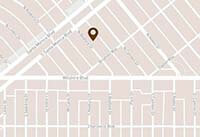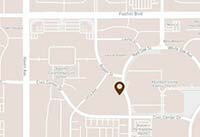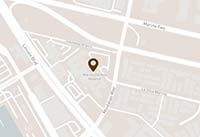Obalon Gastric Balloon FAQ
What is the Obalon Balloon System?
The Obalon Balloon System is the FIRST and ONLY swallowable, FDA-approved balloon treatment
for option for weight loss. The lightweight balloons occupy space in the stomach so people eat
less, which makes weight loss easier. The non-surgical treatment lasts 6-months and is coupled
with a professionally supervised nutrition and exercise program.
What is the vision behind the Obalon Balloon System?
We invented the Obalon Balloon System to be a non-surgical device for weight loss that:
- Is designed for convenient placement
- Achieves weight loss without severe side effects. Less than 1% of adverse events were severe or serious in nature
- Facilitates progressive weight loss over the entire treatment period. Combined with a
moderate intensity weight loss and behavior modification program
What makes the Obalon Balloon System unique?
The Obalon Balloon System is a first-of-a kind technology. Four distinct features are:
- The balloon film: novel, multi-layer, strong, smooth and durable.
This enables the balloon to withstand the acid, enzymes and motility forces within the
stomach environment. It is also bacteria resistant. - The valve: designed to be used with gas, reliable, leak-free and radiopaque.
This enables the balloon to maintain the inflation state during the full 6-month course of
treatment. The balloons can always be viewed with digital imaging. - The capsule and catheter: makes the Obalon Balloon System the ONLY FDA-approved
swallowable weight loss balloon. The capsule contains a fully folded balloon and the
catheter is designed to be ejected, not forcefully removed. - The gas: makes the Obalon Balloon System the ONLY FDA-approved gas-filled weight loss
balloon. Gas makes the balloon lightweight and buoyant. The proprietary nitrogen gas
mixture is designed to reliably maintain the balloon inflation state during the full 6-month
treatment period.
Who can get the Obalon Balloon System?
People are candidates for the Obalon Balloon System if they have a body mass index (BMI) from
30 to 40 kg/m2 and are 22 years or older. They must be willing to follow a 12-month program.
The program begins with the placement of the Obalon Balloons in their stomach for up to six
months. The program includes a healthy diet and exercise program during the time they have the
balloons and for six months after the balloons are removed.
How does the Obalon Balloon System work?
The Obalon Balloon System helps facilitate weight loss by taking up space in their stomach so
people eat less. During treatment people receive professional nutrition and exercise support to
help make the lifestyle changes that facilitate weight loss. The Obalon Balloon System provides
support to help change eating habits and keep the weight off for the long-term.
What commitment is required?
The Obalon Balloon System can assist with weight loss efforts, but weight loss success is also
dependent on people’s readiness to develop new lifestyle skills. The degree of long-term weight
loss will depend on their ability to modify their lifestyle and maintain this behavior after the
balloons are removed. It is important that you discuss their willingness to accept this
commitment before treating them with the Obalon Balloon System.
What weight loss results can be expected?
In a large clinical study, the Obalon Balloon System was shown to help adults have clinically
meaningful weight loss. When used with a diet and exercise program people lost on average 15
pounds and up to 50 pounds. An average of 89.5% of the total weight loss was maintained at 1
year.
How long is the treatment?
The Obalon Balloon treatment is a 6-month treatment. People usually have a second balloon 1
month after the first balloon and a third balloon 2 months after the second balloon. All balloons
will be taken out 6 months after the first balloon capsule was swallowed.
What are the potential side effects of the Obalon Balloon System?
The Obalon Balloon System is a safe, effective, FDA-approved, non-surgical weight loss system.
In the clinical trial, the majority of adverse events were reported as mild and consisted of
abdominal pain and nausea which typically resolve within two weeks. (serious side effects were
less than 0.3%). You can find this information and a complete list of contraindications, warnings
and precautions at www.obalon.com/safety-information.
Will the Obalon Balloon System limit people’s activity?
There is no downtime during placements. People usually resume normal activities immediately
after the balloon placement procedure. For the full instructions for use, visit
www.obalon.com/safety-information.
How is the Obalon Balloon System placed?
Placement of the Obalon Balloon System typically takes less than 10 minutes and does not
require sedation. During the in-office treatment, people swallow a capsule containing a small
balloon that is attached to a micro-catheter. Next, the capsule location is confirmed by digital
imaging and the EZFill™ dispenser verification, and then the balloon is inflated with the gas. After
the inflation is completed, the catheter is detached and removed leaving the inflated balloon in
the person’s stomach.
How large is the Obalon Balloon?
A fully inflated single balloon has a volume of 250cc, weighing less than 6 grams, and is about the
size of a small orange. Therefore, all 3 balloons have a combined volume of 750cc.
How many balloons are used during the treatment period?
Typically, three (3) lightweight, buoyant balloons are placed gradually over 3 months to maximize
tolerability and facilitate progressive weight loss throughout the 6-month treatment period.
Optimal weight loss is achieved with 3 balloons. Those treated with 3 balloons lost more than 4x
as much weight as those treated with 2 balloons. All balloons must be removed 6 months after
the first balloon is placed.
What happens after people get the Obalon Balloon System?
It is important to provide instructions to assist people with their weight loss efforts. Develop a
follow-up schedule to further support their weight loss routine. As people become aware that
they are eating less, it is important to adopt a healthy lifestyle by making healthy food choices
and making exercise a priority.
What should people expect when using the Obalon Balloon System?
Work closely with people to help develop healthy eating and exercise habits, such as making the
right food choices and eating appropriate portion sizes. Because the balloons take up space in
the stomach, people won’t be able to eat the same quantity of food previously consumed.
What is the recommended follow-up?
People should be seen 1-2 times per month for support and supervised coaching. During these
visits, a registered dietician should perform weight measurements, review the person’s food
intake and exercise activity and make adjustments as needed to support their weight loss.
How are the balloons removed?
At the end of the 6-month treatment period, all three balloons are removed by a brief,
approximately 15 minute, outpatient endoscopic procedure which is performed under light,
conscious sedation.
Is the Obalon Balloon System covered by insurance?
The Obalon Balloon System is not covered by insurance. Many practices offer financing options
to help people achieve their weight loss goals.
Who cannot get the Obalon Balloon System?
The Obalon Balloon System is not for everyone. You can find a list of contraindications, and other
important safety information below. Full Instructions for Use and safety information available at
www.obalon.com/safety-information.
INDICATIONS FOR USE
The Obalon Balloon System (the “System”) is a swallowable intragastric balloon system indicated
for temporary use to facilitate weight loss in adults with obesity (BMI of 30 – 40 kg/m2) who have
failed to lose weight through diet and exercise. The System is intended to be used as an adjunct
to a moderate intensity diet and behavior modification program. All balloons must be removed 6
months after the first balloon is placed.
CONTRAINDICATIONS
The following contraindications apply to the Obalon Gastric Balloon System:
- Anatomical abnormalities or functional disorders that may inhibit swallowing or passage
through any portion of the entire Gastrointestinal (GI) Tract. - Prior surgeries that may have resulted in intestinal adhesions, narrowing of any portion of
the digestive tract or any other condition that may inhibit passage through any portion of
the GI tract. - Persons whom have undergone any bariatric surgery procedure.
- Inflammatory and other pathophysiological conditions of the GI tract.
- Chronic or acute use of medications known to be gastric irritants or to otherwise alter
function or integrity of any portion of the GI tract, including but not limited to NSAIDs and
aspirin. - Untreated Helicobacter pylori infection.
- Patients who are unable or unwilling to take prescribed proton pump inhibitor medication
for the duration of the device implant. - Allergies to products/foods of porcine origin.
- Patients diagnosed with bulimia, binge eating, compulsive overeating, high liquid calorie
intake habits or similar eating related psychological disorders. - Patients with known history of structural or functional disorders of the stomach including,
gastroparesis, gastric ulcer, chronic gastritis, gastric varices, hiatal hernia (> 2 cm), cancer
or any other disorder of the stomach. - Patients requiring the use of anti-platelet drugs or other agents affecting the normal
clotting of blood. - Pregnant or lactating women, or women with an intention to become pregnant.
- Known history of duodenal ulcer, intestinal diverticula (diverticulitis), intestinal varices,
intestinal stricture/stenosis, small bowel obstruction, or any other obstructive disorder of
the gastrointestinal tract. - Known history of irritable bowel syndrome, radiation enteritis, or other inflammatory
bowel disease, such as Crohn’s disease. - Patients taking medications on specified hourly intervals that may be affected by changes
in gastric emptying, such as anti-seizure or anti-arrhythmic medications. - Alcoholism or drug addiction.
PRECAUTIONS
- The Obalon Balloon System procedure should only be conducted by physicians specifically
trained to perform the Obalon Balloon System procedure. - Prior to usage of the Obalon Gastric Balloon System, patients should have previously
attempted to lose weight unsuccessfully using a medically supervised or non-medically
supervised diet. - Patients using medications known to affect weight or who are undergoing chronic steroid
immunosuppressive therapy should not use the treatment. - Patients should be advised not to undertake scuba diving or travel in an unpressurized
airplane cabin as these activities might cause the balloons to deflate. - The safety and effectiveness of the Obalon Balloon System has not been established in
patients with: - Type 1 diabetes.
- Type 2 diabetes requiring insulin or other hypoglycemic oral agents.
- Uncontrolled hypothyroidism or Cushing’s disease or syndrome.
- Severe, unstable/uncontrolled medical conditions of major organ systems.
- Patients with known cardiovascular disease such as recent acute coronary syndrome or
clinically unstable ischaemic cardiac disease including evolving or ongoing myocardial
infarction, typical angina at rest, recent coronary intervention, recent deterioration of ECG,
laboratory or clinical findings. - Poorly controlled hypertension (≥160 mm Hg Systolic and ≥100 mm Hg Diastolic).
- End stage renal disease or requiring hemodialysis within the past 6 months.
For full safety information and instructions for use, visit www.obalon.com/safety-information.
return to Obalon Gastric Ballon Informationcontinue to Obalon Gastric Balloon Safety





